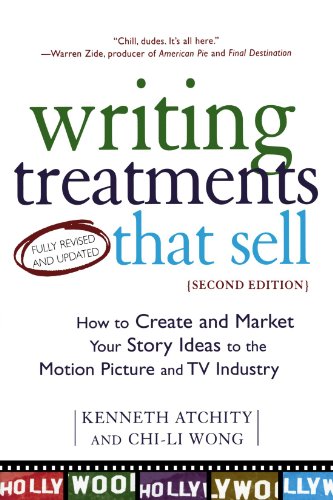Fee Download James Buchanan: The American Presidents Series: The 15th President, 1857-1861, by Jean H. Baker
Discovering the ideal James Buchanan: The American Presidents Series: The 15th President, 1857-1861, By Jean H. Baker book as the right need is kind of good lucks to have. To begin your day or to finish your day in the evening, this James Buchanan: The American Presidents Series: The 15th President, 1857-1861, By Jean H. Baker will be proper sufficient. You could just search for the ceramic tile right here and also you will certainly obtain guide James Buchanan: The American Presidents Series: The 15th President, 1857-1861, By Jean H. Baker referred. It will not trouble you to cut your important time to opt for purchasing book in store. By doing this, you will certainly additionally invest cash to pay for transportation and various other time spent.

James Buchanan: The American Presidents Series: The 15th President, 1857-1861, by Jean H. Baker

Fee Download James Buchanan: The American Presidents Series: The 15th President, 1857-1861, by Jean H. Baker
James Buchanan: The American Presidents Series: The 15th President, 1857-1861, By Jean H. Baker. Thanks for visiting the very best site that supply hundreds sort of book collections. Here, we will certainly offer all books James Buchanan: The American Presidents Series: The 15th President, 1857-1861, By Jean H. Baker that you need. Guides from renowned writers as well as authors are provided. So, you could enjoy now to get one by one type of publication James Buchanan: The American Presidents Series: The 15th President, 1857-1861, By Jean H. Baker that you will search. Well, related to guide that you want, is this James Buchanan: The American Presidents Series: The 15th President, 1857-1861, By Jean H. Baker your choice?
This letter may not affect you to be smarter, however guide James Buchanan: The American Presidents Series: The 15th President, 1857-1861, By Jean H. Baker that our company offer will stimulate you to be smarter. Yeah, at least you'll recognize greater than others who do not. This is just what called as the quality life improvisation. Why ought to this James Buchanan: The American Presidents Series: The 15th President, 1857-1861, By Jean H. Baker It's since this is your favourite theme to review. If you such as this James Buchanan: The American Presidents Series: The 15th President, 1857-1861, By Jean H. Baker motif around, why do not you check out guide James Buchanan: The American Presidents Series: The 15th President, 1857-1861, By Jean H. Baker to enrich your discussion?
Today book James Buchanan: The American Presidents Series: The 15th President, 1857-1861, By Jean H. Baker we offer here is not type of typical book. You understand, reviewing now does not imply to handle the printed book James Buchanan: The American Presidents Series: The 15th President, 1857-1861, By Jean H. Baker in your hand. You can obtain the soft file of James Buchanan: The American Presidents Series: The 15th President, 1857-1861, By Jean H. Baker in your gadget. Well, we mean that the book that we proffer is the soft file of guide James Buchanan: The American Presidents Series: The 15th President, 1857-1861, By Jean H. Baker The material and all things are very same. The difference is just the types of the book James Buchanan: The American Presidents Series: The 15th President, 1857-1861, By Jean H. Baker, whereas, this condition will specifically be profitable.
We share you also the method to obtain this book James Buchanan: The American Presidents Series: The 15th President, 1857-1861, By Jean H. Baker without going to guide establishment. You can continue to go to the link that we supply and also prepared to download James Buchanan: The American Presidents Series: The 15th President, 1857-1861, By Jean H. Baker When many people are busy to seek fro in the book shop, you are quite simple to download the James Buchanan: The American Presidents Series: The 15th President, 1857-1861, By Jean H. Baker right here. So, exactly what else you will choose? Take the inspiration here! It is not just supplying the ideal book James Buchanan: The American Presidents Series: The 15th President, 1857-1861, By Jean H. Baker however also the appropriate book collections. Here we consistently give you the most effective and most convenient way.

A provocative reconsideration of a presidency on the brink of Civil War
Almost no president was as well trained and well prepared for the office as James Buchanan. He had served in the Pennsylvania state legislature, the U.S. House, and the U.S. Senate; he was Secretary of State and was even offered a seat on the Supreme Court. And yet, by every measure except his own, James Buchanan was a miserable failure as president, leaving office in disgrace. Virtually all of his intentions were thwarted by his own inability to compromise: he had been unable to resolve issues of slavery, caused his party to split-thereby ensuring the election of the first Republican president, Abraham Lincoln-and made the Civil War all but inevitable.
Historian Jean H. Baker explains that we have rightly placed Buchanan at the end of the presidential rankings, but his poor presidency should not be an excuse to forget him. To study Buchanan is to consider the implications of weak leadership in a time of national crisis. Elegantly written, Baker's volume offers a balanced look at a crucial moment in our nation's history and explores a man who, when given the opportunity, failed to rise to the challenge.
- Sales Rank: #341912 in Books
- Published on: 2004-06-07
- Released on: 2004-06-07
- Original language: English
- Number of items: 1
- Dimensions: 8.50" h x .56" w x 5.50" l, .73 pounds
- Binding: Hardcover
- 192 pages
- biography of James Buchanan, fifteenth president, maybe the worst
Review
"[A] sweeping narrative, beautifully written and scrupulously evenhanded, [that] does full justice to Stevenson and his people.... Ambitious, elegiac, and provocative."
About the Author
Jean H. Baker is a professor of history at Goucher College. She is the author of several books, including The Stevensons and Mary Todd Lincoln, and is at work on a book about the suffrage movement. She lives in Baltimore, Maryland.
Most helpful customer reviews
47 of 48 people found the following review helpful.
The Peter Principal Applied
By E. E Pofahl
The author, Jean Baker, wrote on page 1 "After the election of James Madison....no president had ever come to office with more impressive credentials. Nor, to this day, has any matched Buchanan's public positions." Buchanan served in the Pennsylvania state legislature, served in the U.S. House and Senate, was Andrew Jackson's minister to Russia, was secretary of state under James Polk, and was minister to the Court of St. James in the 1850s.
With his background, the question must be asked "why was Buchanan, arguably, our worst president?" The author states "This book seeks to suggest some of the reasons for Buchanan's failure and specifically to explain the gap between Buchanan's experience and training before his presidency and his lamentable performance in office.... only in the literal sense did the Civil War begin.... When the Confederates fired on Fort Sumter. It began in Buchanan's administration."
The book outlines Buchanan's political career. While still a Unionist, by the 1830s he was "more and more a states rights man" as he gravitated toward southerners after arriving in Washington and considered New Englanders radical extremists. By the 1840s, he opposed any interference with slavery and by then desperately wanted the presidency. In the Senate he espoused the principle of manifest destiny. As a bachelor he cultivated southern friends many of whom, as president, he included in his cabinet.
Having observed chief executives for more than thirty-five years, when Buchanan took the presidential oath in 1857, he knew more about the American presidency than anyone in the United States. However, the composition of his "cabinet revealed the incoming chief executive as no peacemaker...." Who was ".... surrounded by advisers who agree with him." The author narrates Buchanan's presidency as he moved from one ill-advised solution after another when solving critical problems. He continued his strong pro-southern attitude and acted accordingly. He unethically influenced the court's decision on the Dred Scott case, and seriously mishandled the situation in Kansas. The author notes "By taking the side of the South, Buchanan had split the Democrats, and in the process he had ensured his nightmare: the election of a Republican in 1860...." stating "The destructive effects of the president's policy were immediately apparent in the 1858 fall congressional elections when a disproportionate number of northern Democrats lost...."
The text gives a fascinating account of Buchanan's final year as president. The text notes that in 1857 Buchanan had sent troops into Utah to handle a problem with Brigham Young and the Mormons; yet when the secession crisis developed, and the Fort Sumter confrontation developed, he failed to respond firmly in like manner thereby encouraging secession. Amazingly his southern cabinet members and political associates treasonably passed critical government plans and information to the seceding state governments. Interestingly, the author notes "Buchanan's failing during the crisis over the Union was not inactivity, but rather his partiality for the south, a favoritism that bordered on disloyalty in an officer pledged to defend all the United States...." and continues "He was that most dangerous of chief executives, a stubborn, mistaken ideologue whose principles held no room for compromise."
The last chapter addresses the question why did such an experienced and intelligent politician failed so miserably as president of the United States? The text states "The answer speaks to one of the palpable characteristics of failed presidencies-the arrogant, wrongheaded, uncompromising use of power...."; and continues "His presidency did not suffer from feebleness or insufficient power or administration by a senile sixty-eight old. But the problem that he used the power with such partiality for the South." The author concludes "Ultimately Buchanan failed to interpret the United States."
The reader may ask why study a failed presidency. Such study is important for guidance it provides to future national leaders. In the words of George Santayana "Those who cannot remember the past are condemned to repeat it." The country can ill-afford another Buchanan type presidency.
Reading Buchanan's biography brings to mind the Peter Principle theory originated by Dr. Laurence J. Peter in 1969 regarding an individual being advanced to his level of incompetence. Clearly, Buchanan had a good resume; but when he advanced to a position where compromise, teamwork and leadership were paramount, he had reached his level of incompetence.
This should be a "must read" for those interested in the political/governmental aspects of the Civil War.
45 of 53 people found the following review helpful.
Superb biography of an indisputably failed presidency
By Robert Moore
Almost universally James Buchanan's administration is considered to be one of the worst presidencies in American history. Most of those who are considered our greatest presidents are so regarded because they performed admirably at times of great crisis or at key moments--Washington in helping to shape the concept of the office at its outset, Lincoln in holding together the Union and leading the nation at the moment of its greatest crisis, and FDR both during the Depression and during World War Two. Buchanan, however, is noteworthy for how miserably he performed in a moment of crisis. While tensions were greatly increasing between North and South, Buchanan not only misread the mood of the nation as a whole, he so completely favored Southern sympathies and inflamed Northern and Southern outrage that a deeper crisis was unavoidable, and when South Carolina seceded from the Union, did nothing to try and defuse the crisis. Buchanan's administration was distinguished not merely for what he did wrong, but for what he failed to do at time of greatest crisis.
Upon buying this book but before reading it, I checked on Amazon and read the reviews that already existed. Needless to say, the multiple one-star reviews were not very encouraging, and I was expecting a lesser effort in this series. Instead, I was surprised and delighted both at Jean Baker's high degree of scholarship and understanding of her subject, and at her superb facility in expressing herself, hardly the inarticulate, poorly informed historian some of the earlier reviewers detected. How to account for this? I have a theory. Although virtually any sane, rational reader of this or any balanced biography of Buchanan will inevitably be led to regard him as one of if not the worst president in American history, his memory is semi-sacred for people with either of two axes to grind. First, some who persist in holding a strong belief in states' rights revere him as an almost fanatical defender of that doctrine. Nevermind that he himself violated the principle by attempting to force slavery on the Kansas Territory when the people in the region strongly did not wish to be a slave state. Nonetheless, some who want to defend that doctrine are willing to overlook Buchanan's other inadequacies because of that tendency in his thought. Second, many of those who defend states' rights and even side with the South in the Civil War do not care for Lincoln, and one way to try and steal some of Lincoln's thunder is to attempt to make out that Buchanan wasn't the catastrophe that virtually all informed scholars view him as being. Therefore, it is entirely possible that some of the reviewers of this quite excellent biography will do so for reasons completely extraneous to the book itself.
For most readers, however, not enthrall to a quaint reading of the constitution, this will prove to be a superb short biography of America's worst president. Moreover, I found it somewhat refreshing to discover an author in this series who did indeed agree that her subject was a poor as history has recorded him to be. For instance, in John Dean's biography of Harding in the same series, he is determined to prove that Harding isn't the competitor with Buchanan for the title of worst president that he is often taken to deserve (that Dean largely carries his point is beside the point). Baker not only concedes that Buchanan was a failure as president and catalogs the host of ways in which he failed, she constructs some highly plausible explanations for why.
I will caution that this is a somewhat depressing book. One knows the result of his term in office. After Lincoln's election but before his inauguration, Buchanan oversaw the break up of the United States, with no significant actions to attempt its dissolution. Could timely action have prevented the Civil War? We will never know for sure, but we do know that Buchanan did nothing instead of something, and we know that he espoused a host of doctrines and made a number of decisions that did nothing to lessen the growing regional tensions in the nation in the late 1850s. Many Americans currently view our sitting president as among the worst in American history. If so, Buchanan represents his stiffest competition.
21 of 23 people found the following review helpful.
And nooww... James! Buchanan!!!
By Gio
There are 72 reviews of this brief and simply-written biography of a President who came to office with superb qualifications and who bungled the job that perhaps no one could have done. I found the book quite adequate as an introduction to the decade of the 1850s. Causes have to precede effects; anyone interested in the causes of the Civil War ought to have a good look at the events that led to Buchanan's election, and the dismal decision Buchanan made in reaction to those events. Honestly, however, you needn't buy the book. Just read the 72 reviews herewith. It will take some patience, and some tolerance for bad syntax, but it will reveal just exactly how polarizing the Civil War was, and still is.
This "American Presidents" series is surprisingly top notch. I also recommend the biography of US Grant, the most underrated and slandered chief exec of American history.
James Buchanan: The American Presidents Series: The 15th President, 1857-1861, by Jean H. Baker PDF
James Buchanan: The American Presidents Series: The 15th President, 1857-1861, by Jean H. Baker EPub
James Buchanan: The American Presidents Series: The 15th President, 1857-1861, by Jean H. Baker Doc
James Buchanan: The American Presidents Series: The 15th President, 1857-1861, by Jean H. Baker iBooks
James Buchanan: The American Presidents Series: The 15th President, 1857-1861, by Jean H. Baker rtf
James Buchanan: The American Presidents Series: The 15th President, 1857-1861, by Jean H. Baker Mobipocket
James Buchanan: The American Presidents Series: The 15th President, 1857-1861, by Jean H. Baker Kindle










